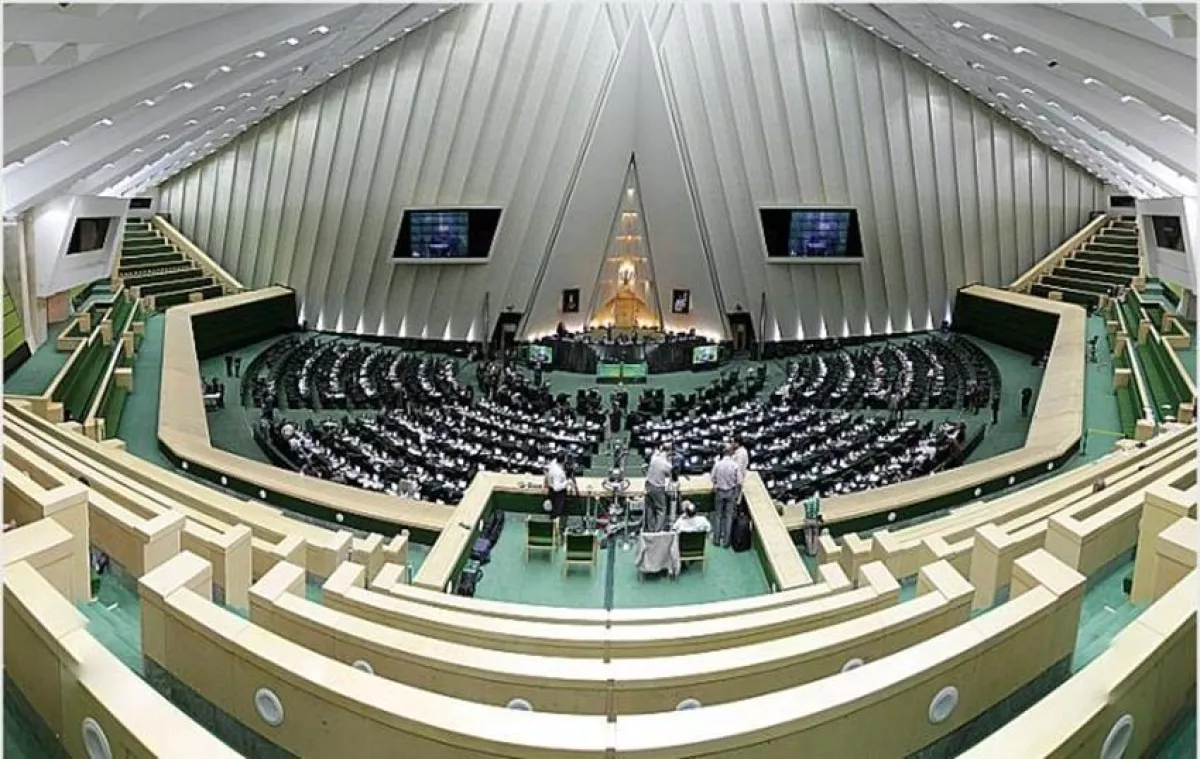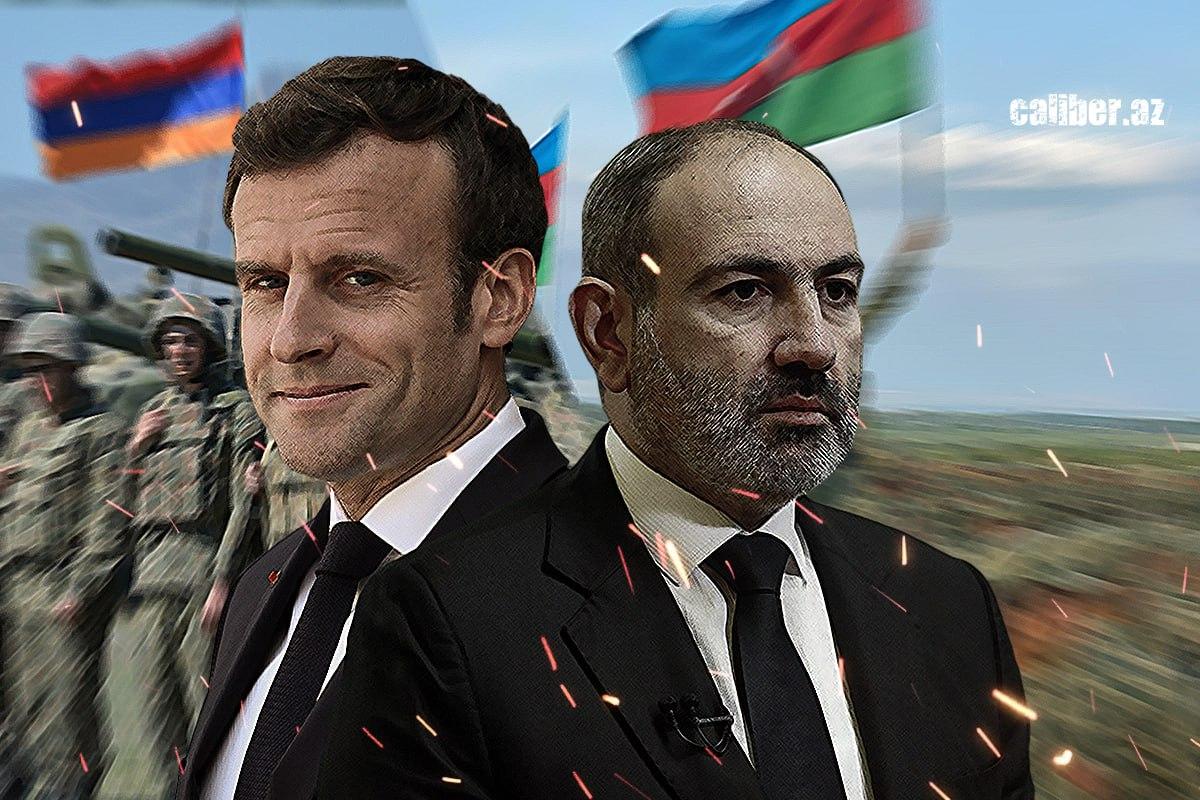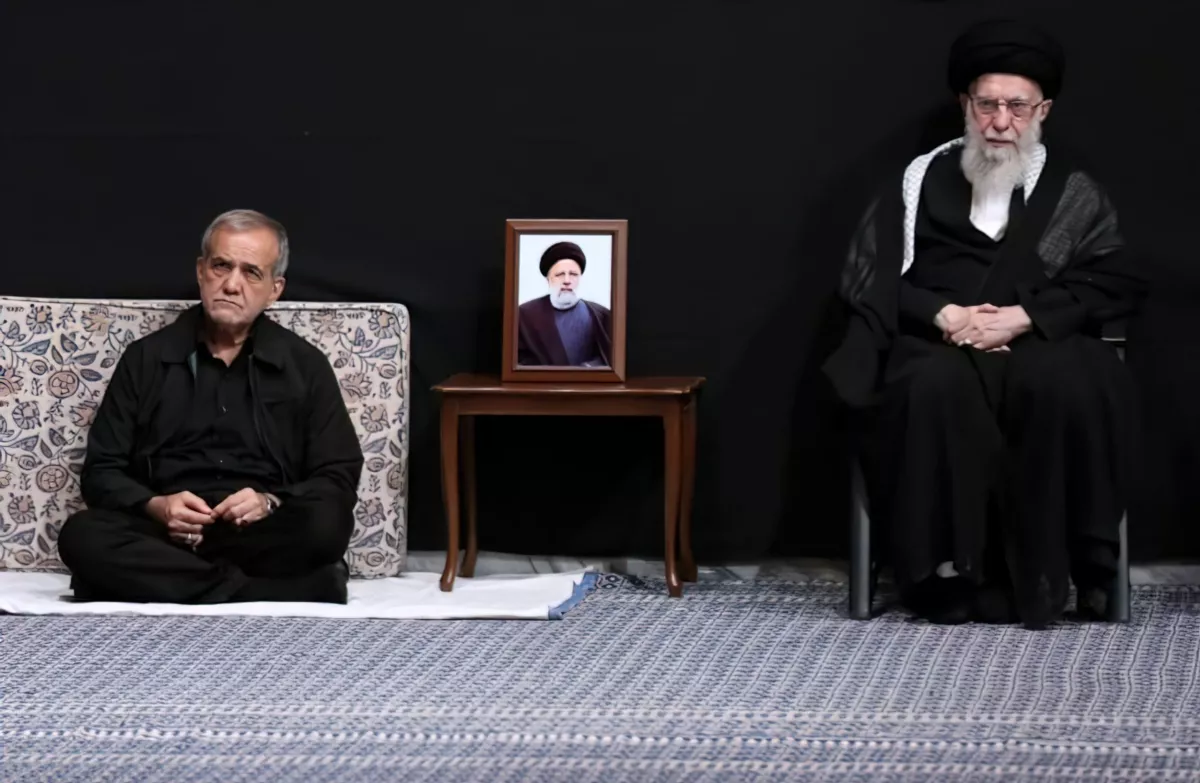Iran’s plan for Armenia: Echoes of the "Bosnian Scenario" Zangezur Corridor controversy
Tensions between Tehran and Moscow have been escalating over the Zangezur Corridor, which aims to restore communication routes between regions in Azerbaijan. This conflict unfolds amid a series of contradictory moves: on one side, Iran seems to be leveraging the "Armenian card" to broker a significant deal that could improve its relations with the US and the EU, even at the expense of its ties with Russia. On the other side, Iran appears to be supplying ballistic missiles to Russia, potentially using this as a bargaining chip in negotiations with the West.
Even the most pro-Western Armenian revanchists are pinning their hopes on Iran as a tool for their objectives and are actively promoting any Iranian statements, whether authentic or fabricated. Those in desperate situations cling to any glimmer of hope, and the defeated Armenian nationalists hold on to these Persian promises. While Tehran may entertain these nationalists temporarily, it is likely to abandon them for minimal concessions. For the Iranian establishment, the Caucasus remains a secondary concern compared to the Gulf or the Arab world — it's no coincidence that recently the President of Iran suggested relocating the capital southward, closer to the oil and gas fields and the open sea.
In search of Western allies
Iran’s seriousness about playing the "Armenian card" in its dealings with the West is underscored by a new phase of diplomatic activity that risks its relationship with the Kremlin. On the surface, it appears that Iran is actively supporting Russia in its war against Ukraine. On September 10, Russian Security Council Secretary Sergey Shoigu stated, “We expect to soon finalize a new basic intergovernmental treaty. We are completing the internal procedures necessary to prepare the documents for signing by the Presidents of Russia and Iran.” Additionally, over the weekend, American media reported that Iran had supplied ballistic missiles to Russia. The US promptly threatened Tehran with new sanctions, leading Iranian officials to deny these reports.
There is no concrete evidence regarding these missile deliveries, though Western media have reported satellite images of ships transporting the weapons across the Caspian Sea. It is likely that the team of Iran’s new president, Masoud Pezeshkian, and the so-called "reformist" movement behind him would prefer to avoid such deals. They are seeking to negotiate a significant geopolitical shift with the West, aiming to normalize relations with Western countries and distance themselves from Russia and China. While Tehran has previously engaged with the West over issues like its nuclear and missile programs and conflicts in Syria, Iraq, Palestine, and Yemen, Armenia has now emerged as another bargaining chip in the regional and global power struggle, thanks to the efforts of the Armenian leadership.
This perspective was recently articulated by Ahmad Bakhshayesh Ardestani, a Majlis member and member of the National Security Committee, who emphasized the "Armenian card" and the Zangezur Corridor issue. His statements have been widely shared by Armenian online channels.

Bakhshayesh’s primary message is a call for the West to engage in negotiations with Iran. He laments that the West has withdrawn from the nuclear deal, although he suggests there are no alternatives for the West: “Europeans understand Iran’s strategic position, but they are not willing to negotiate with us. They did not take any action regarding the nuclear deal when the US withdrew from it.” The new generation of Iranian reformists is pinning its hopes on Trump. “The collective West knows well that, due to Iran’s vast geography, it could serve as a pillar of stability in the region. Both Putin and Trump have acknowledged Iran’s role in their speeches. Trump’s goal during his presidency was, perhaps, to shock Iran into action, but he also hoped to forge an alliance with the Iranians.”
Bakhshayesh reflects with a hint of frustration that Iran now finds itself in the “Eastern Bloc” alongside China and Russia. He notes that Iranian President Rouhani spent eight years unsuccessfully negotiating with the West, only for Iran to be forced into alignment with Russia and China. Bakhshayesh uses this situation to send a clear signal to the West that Tehran is open to revising its political course. He highlights that Tehran has significant disagreements with its “strategic allies” on critical issues. For instance, he mentions that Tehran supports Japan over Russia in the dispute over the Kuril Islands and disagrees with Beijing on the Hong Kong issue (likely referring to China’s policies towards local pro-Western groups). Given the importance of these issues for both countries and international politics, Bakhshayesh’s message is unmistakable.
The Iranian parliamentarian sends a similar message regarding the Zangezur Corridor, expressing concern about its negative impact on Iran’s national interests. He disregards diplomatic language, stating outright: “Iran aims to maintain balance along its northern borders and prevent the strengthening of Azerbaijan and Türkiye.”
Bakhshayesh justifies his objections to the corridor by emphasizing Iran’s need to protect itself: “Iran must remain vigilant in its policy to avoid compromising its national interests and inadvertently meeting the demands of Türkiye and Azerbaijan regarding the Zangezur Corridor. These concerns reflect Iran’s sensitivity about its borders and regional events.”
Missiles in exchange for corn
However, this rationale for opposing Baku and Ankara does not hold up to scrutiny. Azerbaijan and Türkiye are regional states operating within their own territories, and they do so with considerable restraint. In contrast, the Armenian government, rather than seeking peace with its neighbors, is bringing in external forces that destabilize the region, turning its own country into another battleground for superpowers. The Iranian parliamentarian completely ignores the fact that the West is supplying Armenia with weapons.

The issue extends beyond France and potentially even India, which may be coordinating with the West. There are more alarming signs: on September 10, Armenian Defense Minister Suren Papikyan traveled to South Korea for a working visit. Formally, the visit is framed as participation in a multilateral event followed by a trip to China. However, South Korea plays a crucial and sensitive role in US politics. When Washington wants to alter the strategic balance of power through arms supplies but finds the move too risky, it often relies on South Korean arms manufacturers.
For example, in the late 2010s, Seoul initially sent large shipments of weapons to Eastern Europe, disrupting military balances in the region and even within NATO (Germany’s military status was significantly reduced). The Armenian government is likely aware of this "South Korean model" and may be trying to replicate it. Financial constraints in Yerevan are less of an obstacle, as South Korean arms supplies to Eastern Europe were also provided on credit or effectively funded by Western European countries (through EU subsidies).
Bakhshayesh’s arguments that the Zangezur Corridor concerns Iran due to potential shifts in the balance of power are, to put it mildly, unconvincing. Unlike Azerbaijan, which seeks to restore connections between its own regions, Armenia is attempting to disrupt the balance by seeking Western arms or even Western troops (in place of Russian forces). Bakhshayesh overlooks this and instead complains that Russia’s recent support for the corridor is driven by a desire to punish Armenia—something that Iran’s leadership cannot accept. Essentially, Bakhshayesh’s comments on the Zangezur Corridor seem to be a tactic for Iran to propose an additional bargaining chip: Tehran would support a radically pro-Western regime in exchange for a favorable deal.
Regarding missiles for Russia, Bakhshayesh ironically downplays the missile deal, commenting that it is a trade where "missiles and drones are exchanged for soy and corn." At the same time, he hints that everything is up for negotiation, noting that the missile supplies began due to the failure of the deal with the West and Western sanctions against Iran. Bakhshayesh argues that the West should now negotiate with Tehran, as further sanctions would not worsen Iran’s situation, while Iranian missile supplies play a crucial strategic role: “We supply missiles to Hezbollah, Hamas, and Hashd al-Shabi—so why not supply them to Russia?”
Bakhshayesh’s pragmatic attitude toward these issues is consistent with his political alignment and that of the current Iranian president. He represents the same reformist forces that have been seeking a deal with the West for nearly thirty years—an effort pursued by Rouhani, Khatami, and Rafsanjani. While the current Iranian government is not entirely detached from the arms supplies to Russia, a closer look reveals that these supplies are ultimately linked to the Islamic Revolutionary Guard Corps (IRGC). This is especially true for missiles and drones, which have long been the domain of the IRGC. The IRGC is known for its opposition to the so-called reformists, who seek agreements with the West at the expense of the Corps’ interests both domestically and internationally.
The "reduction of neighbors"
Given the perpetual conflicts between the IRGC and the reformists, one might be tempted to dismiss the statements about missiles and the Zangezur Corridor as typical internal political squabbles. Moreover, Russian media have pointed out that Iranian officials have only openly criticized the Zangezur Corridor once—by Supreme Leader Ayatollah Ali Khamenei following a meeting with Pezeshkian, where he tweeted his concerns.

Firstly, Bakhshayesh is not merely a media commentator but a long-standing member of a key parliamentary commission in Iran, reportedly since 2012. The Iranian parliament plays a vital role in the country’s governance. Secondly, while Bakhshayesh later retracted his comments about missile supplies, he maintained his stance on other issues, and the interview was republished by various Iranian media outlets.
Most notably, on September 4, 2024, the Iranian news agency Tasnim, which is closely aligned with the IRGC and more radical political factions, also opposed the Zangezur Corridor. Tasnim published a bold statement titled: “Warning to the Russians regarding Zangezur: This imaginary corridor will not be created.” However, Tasnim later significantly toned down the English version of this statement, likely due to concerns over its radical implications.
The original text outlines eight points of opposition to the Zangezur Corridor from unnamed but evidently influential political forces within Iran. These points are largely familiar and revolve around accusations of attempting to redraw borders through the creation of the corridor. However, there are a couple of intriguing details:
1. In point 7, Tasnim notes: “the creation of the Zangezur corridor will translate into the closure of one of Iran’s gateways to Europe and will reduce the number of Iran’s neighbors from 15 to 14.”
2. Earlier, in point 5, the text claims: “When Russia was deeply engaged in the war with Ukraine, the Americans sought to intrude into the South Caucasus, much like a serpent in NATO’s skin. However, the Islamic Republic of Iran stood alone, opposing NATO and America with all its might. As a result, the Biden administration declared that Iran had become the sole obstacle to the opening of the Zangezur Corridor.”
These points highlight the strategic concerns and geopolitical dynamics that underpin Iran’s stance on the corridor.
The debate over the veracity of such statements aside, the intentions and sentiments conveyed in them are particularly intriguing. Essentially, the IRGC-affiliated news agency is issuing a warning to the Russians and reminding the West that Iran can influence matters in favor of a radically pro-Western Armenian government.
While this might seem far-fetched to some, history provides parallels. Currently, Tehran appears to be suggesting that the West consider a "Bosnian model" in Armenia. In the 1990s, during the Bosnian conflict, it was indeed the Iranians—specifically the IRGC, and no other Iranian security forces—who assisted the West. They provided military and other support to the Bosnian Muslims (and indirectly to the Croats, who strategically benefited more from this aid) during the civil war in the remnants of Yugoslavia, a state fragmented by Western interventions.
In general, Iran and various forces on the Iranian political scene are attempting to negotiate a major deal with the West. This is evident from the events surrounding the assassination of the Hamas leader in Tehran and the ongoing efforts to build a partnership between Iran and the collective West regarding Armenia. The issue of the Zangezur Corridor is part of this negotiation.
However, this does not seem to bother Armenian revanchists, who in recent days have been spreading blatant fabrications, presenting them as "statements from the IRGC" claiming that it is ready to intervene in the South Caucasus and fight for Armenian nationalists. In fact, the IRGC opened its first airbase in the northwestern part of Iran on September 11, near the borders with Azerbaijan and Armenia. However, upon closer examination, it turns out that this helicopter base in Urmia will operate in a completely different direction, as it is focused on operations against the terrorist Kurdistan Workers' Party (PKK), which has long collaborated with the United States. The IRGC will not come to save Pashinyan: from Tehran's perspective, the "Armenian card" is entirely expendable.








